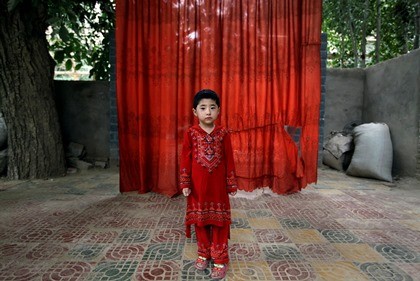Fengshu, a town in Central China's Hunan Province, has set plans to reinforce Uyghur traditions with the aim to enhance tourism, boost the local economy and preserve its ethnic diversity and tradition, the Global Times reported.
Fengshu is populated by thousands of Uyghurs, whose ancestors came from eastern Xinjiang more than 600 years ago, but most of their ethnic features have disappeared after assimilation and adaptation to the Han culture and customs.
The report said that the local government had made efforts to draw the people back to Islamic customs and revive the Uyghur culture, which included the funding for the expansion project of the mosques, improvement of traditional dwellings, and the teaching of Uyghur language.
More than 160 people in the town have returned to Islam, according to Ma Boyi, president of the Taoyuan Islamic Association. Local imams are also promoting the belief that true Muslims love their country and are loyal to the Party.
The Taoyuan government has taken steps to help retain the Uyghur ethnic culture and develop tourism, the report added. These included the establishment of a national unity park in Fengshu, which cost around 480 million yuan ($77.3 million); the building of a flower and folk culture garden; expanding the township's mosque; renovating houses in a traditional Uyghur style; and restoring the residence of Jian Bozan (1898-1968), a prominent Chinese Marxist historian.
The government said that the park has lured 400,000 tourists during last October's holiday travel period, which brought great business opportunities to Fengshu.
As part of the security, a network of monitoring system was established and mosque management committee workers were encouraged to report any suspicious persons or visitors to the government.
Also, religious officials and police attend classes twice a year to study related laws and policies, organized by the mosque's management.



























